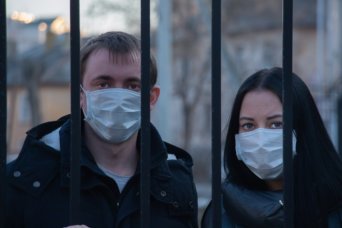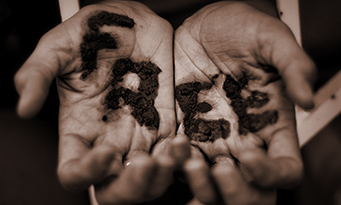- About
- Topics
- Picks
- Audio
- Story
- In-Depth
- Opinion
- News
- Donate
- Signup for our newsletterOur Editors' Best Picks.Send
Read, Debate: Engage.
| topic: | Human Rights |
|---|---|
| located: | Egypt, United Kingdom, China, Germany |
| editor: | Gurmeet Singh |
We are in a global crisis. Nations are struggling to protect their citizens and to stop the global economy from tanking.
How each country is responding reflects their priorities and competence. The crisis has also offered governments to enlarge their powers through the deployment of emergency powers. China, for example, has used the crisis to amplify its social monitoring programmes, using technology to monitor cases of the coronavirus digitally; this has had positive benefits, allowing cases to be tracked, but uses citizens’ smartphones, facial recognition software, and also geolocation data to track citizen movements. It is a clear expansion of surveillance powers.
There are concerns that in Europe and the U.S. there will be a similar expansion of government powers. The U.K. has already increased policing powers (as well as possibly its powers of expulsion), and as Yuval Noah Harari pointed out in a widely-shared Financial Times article this week, once emergency powers are invoked, they have a habit of staying in force.
In Egypt however, the crisis is being used as an opportunity to reduce press freedom. Ruth Michaelson, a journalist for the Guardian has been ‘expelled’ from the country – it is an expulsion in all but name.
“Ruth Michaelson, who has lived in and reported from Egypt since 2014, was advised last week by western diplomats that the country’s security services wanted her to leave immediately after her press accreditation was revoked and she was asked to attend a meeting with authorities about her visa status.
On Sunday 15 March, Michaelson had reported on research by infectious disease specialists from the University of Toronto as well as public health data and news stories that pointed to Egypt having a higher rate of coronavirus cases than the number confirmed by the government.”
It goes on to say that diplomatic services from Germany (Michaelson is also a German citizen), advised her not to attend the meeting under any circumstances, as Michaelson would have almost certainly been arrested at such a meeting. Having had her press accreditation revoked, under threat of arrest (for reporting), with planes due to be grounded the following day, Michaelson had no choice but to leave the country.
Receiving global press coverage, Michaelson’s expulsion has highlighted just how hostile the Egyptian regime is to scrutiny. Al-Jazeera took the opportunity to highlight a more severe case of Egyptian press hostility.
Al Jazeera's Mahmoud Hussein has been imprisoned without trial in Egypt for more than three years over allegations of producing "fake news". Accusations the network vehemently denies.
The Qatar-based network last week urged authorities in Egypt to immediately release Hussein and other jailed journalists.
"It is unacceptable that Mahmoud has been held by the Egyptian authorities for nearly 1,200 days for merely being a journalist with baseless accusations and trumped-up charges," the acting director-general of Al Jazeera Media Network, Mostefa Souag, said.
Doubtless such brazen disregard for press freedom has been enabled by Trump-led rhetoric about fake news and a populist distrust of mainstream media, but the coronavirus crisis is a perfect opportunity for governments the world over to justify the expansion of their powers. We should remain vigilant, even while we self-isolate.
Image by Наркологическая Клиника

